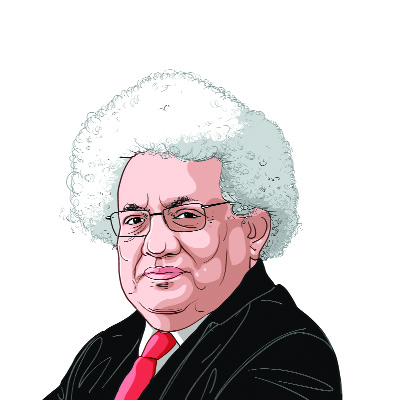Opinion Denial is failure
The lessons for Kashmir from the Northern Ireland peace
Dear Prime Minister,
I recall that when we first met after your taking over as PM in 2004,almost the first thing you said to me was: Let us not discuss economics.
I want to talk about Kashmir. The search for a resolution of the troublesome situation in Kashmir has been one of the major aims of your policy in the last six years.
Alas,Kashmir does not yield easily to a quick,or almost any,solution. It is a playing field for so many forces local,national and international that each time you think you have solved it,something happens to slip it out of control. Vajpayeeji began dialogue with Musharraf despite provocation,and you continued it. Then Musharraf went,and the new regime was too unsteady on its feet. And yet you continued. But then 26/11 came,as a message from the terrorists that they did not wish for peace. Meanwhile the political climate in Kashmir improved and we had elections. Your persistence seemed to be paying off till now,when we have riots on the streets,strikes and stone-pelting.
This reminds us that Kashmir is not just a problem between Pakistan and India,but there are tensions within Kashmir itself. There are the local political parties who take part in the electoral process,parties who are labelled as moderate,or as hardline if they dont. These play their complicated games of push and shove. Then there are the people of Kashmir themselves,who often have grievances which are not unknown in other parts of India,but their desire to register them leads to charges of treason and subversion. There is Pakistan,of course,both official and mujahideen,just over the border,and hoping to make hay whenever possible. Beyond them is the international community,which has learnt to bite its tongue on this issue but I know that their worry about the volatility of the situation is genuine.
Kashmir has now been an unresolved problem for 62 years. Some political parties insist that there is nothing to solve and Kashmiris should not be indulged. Denial however is not a sound strategy. I observed the resolution of the Northern Ireland problem; it could be said that it started in 1922,and by 1968 had erupted into violence,violence which continued so for the next 30 years. There,again,there were people in denial about the problem,and others who had extra-territorial connections. Among the many parties involved were the politicians of Northern Ireland,bitterly divided on sectarian lines; parties from within the UK; the parties of the Irish Republic; and,thanks to the Irish diaspora,the US. Terrorists on both sides sabotaged negotiations just when they seemed to be working well. Eventually it was the lead given by UK Prime Minister Tony Blair,continuing the work of his predecessor John Major,which cracked the problem. The key was that each side in the dispute acknowledged that neither was fully right nor entitled to exclusive power.
No analogy is perfect and today you may not wish to read about some esoteric British problem. But the lesson from the Northern Ireland experience is that,in a divided society,power cannot be the exclusive domain of one party,even if it is the majority party in the legislature. In a troubled situation,one can do without opposition from within the democratic arena,so one can focus on those who are outside the electoral framework.
If you could bring all the parties in the J&K assembly under a single coalition with a common minimum programme,it will create breathing space to tackle the problems which are being played out on street corners. Only an all-party coalition can work on issues of human rights,and the Armed Forces Special Powers Act,without fear of being outbid by another claimant to power. Only such a coalition will be able to talk to those outside the electoral framework.
I hope you excuse my presumption in taking recourse to a public medium in this manner but I agree with you that this is the most important problem India faces.
The ball is in your court.
The writer is a Labour peer in the House of Lords,UK
express@expressindia.com


